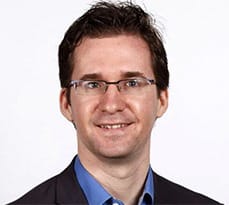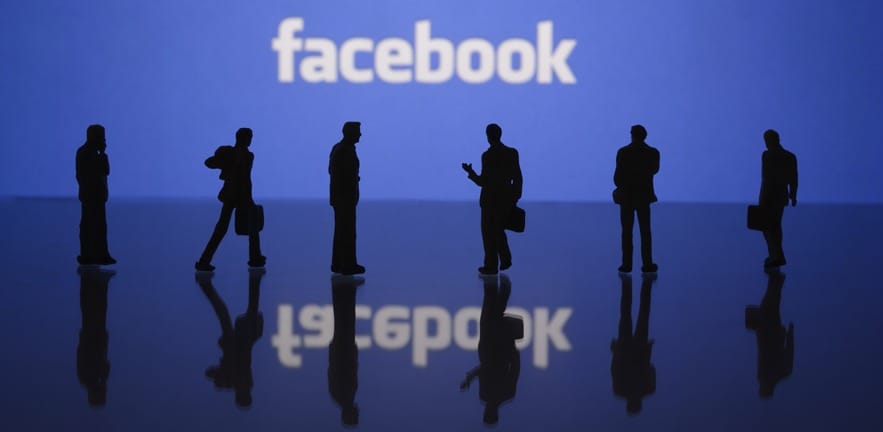
Who do you reckon knows you best? Your friends? Your children? Work colleagues?
Turns out it’s none of these. It’s not even your mum. Because even she doesn’t know all your little ways quite as well as… Facebook. It’s true. Every time you click on that “Like” button, you add more data to a system that can predict your behaviour more reliably than anyone you know.
These are the somewhat unsettling conclusions of research by the University of Cambridge’s Dr David Stillwell, who found this digital footprint enabled computers to predict someone’s personality with more accuracy than humans.
“Clicking a ‘Like’ button seems a trivial thing to do,” says Dr Stillwell. “But as well as recording your favourite movies, bands and TV shows, they often reveal your views of more serious topics. Those records don’t go away – every ‘Like’ builds up an ever-clearer picture of who you are.”
Dr Stillwell, Deputy Director of the University’s Psychometrics Centre, worked with colleagues to develop an app: users downloaded a personality test which incorporated Facebook “Likes” to give the team a detailed profile and, with permission, gave Dr Stillwell 86,220 volunteers for his research.
From that data developed another app, Apply Magic Sauce, which not only guesses your gender, sexual orientation, intelligence, politics, religion and temperament but judges you on the accepted “big five” personality traits of openness, conscientiousness, extraversion, agreeableness and neuroticism.
Dr Stillwell and his fellow researchers, Cambridge PhD student Wu Youyou and Michal Kosinski from Stanford Business School, then compared the results with the participants’ Facebook “friends” and found the automated social network a far better judge of character than its human equivalent
“Many Facebook users click that ‘Like’ button almost without thinking,” says Dr Stillwell, “so they may be surprised to learn just how accurate a picture it paints. But it’s all grounded in logic – if you identify yourself as liberal on, say, a couple of issues, that’s going to give a pretty strong indication of, for instance, who you’re going to vote for or your views on other topics.”
Online profiles have, of course, long been used by retailers to target potential customers, and AI has been around for decades, but Dr Stillwell’s research is the first to show how much better a machine is at judging the nuances of our personalities. And, unsurprisingly, marketeers are extremely interested. “In the 1950s you spoke to a mortgage adviser who knew you and your family and built up a judgment about you,” says Dr Stillwell. “This understanding suffered a little when banks first went online because the use of standard application forms meant they treated everyone the same. But now computers can learn exactly who you are and exactly what you’ll want.”
Scary? Not necessarily, says Dr Stillwell “Allowing data to be shared can be very beneficial. If you buy something on Amazon you get a recommendation – ‘People who bought this also bought….’ – which I personally find really useful. However, some people hate it. But if you think about it, but often the reason they hate it is that it is not targeting them well enough. If it always recommended something that would interest them, they’d like it a lot more. And our results show companies now have the power to do that.”
But such detailed profiling goes much wider than selling a few trinkets: “Matching personalities more accurately makes online dating more successful; it could link employers with the right job applicants, or even enable estate agents to advertise particular houses specifically to people they know have similar profiles, likes and dislikes to the vendor. The possibilities are endless.”
But isn’t the fact that a computer knows you better than your mum just a little bit, well, unsettling? “Yes it is,” says Dr Stillwell. “It can be very creepy to think a computer can predict your next move, who you vote for, even who you’ll marry. But the critical question is absolutely not what the data is, but how it’s used. We want data usage to be as transparent as possible, so if you get an ad appearing on Facebook which explains ‘You’re seeing this because…’ it’s immediately less creepy, especially if you then have the opportunity to say: ‘Right, well I’m comfortable for you to use my data for this purpose, but not that one.’”
But those who might still be a little unnerved can feel reassured that the algorithms haven’t quite replaced Mum yet. They don’t say: “You needn’t think you’re going out dressed like that” or “I know full well you haven’t tidied your room.” Well, not yet, anyway.


